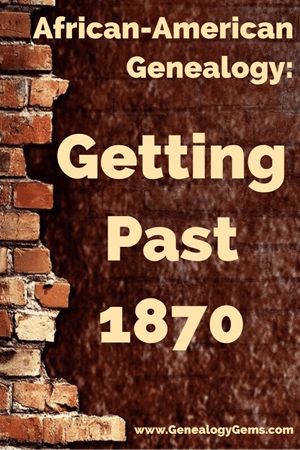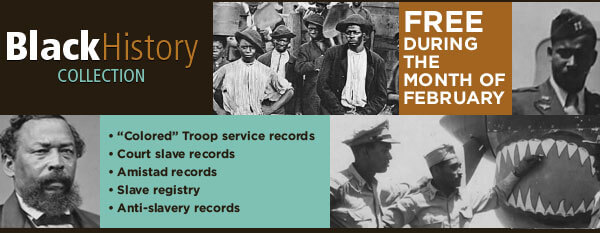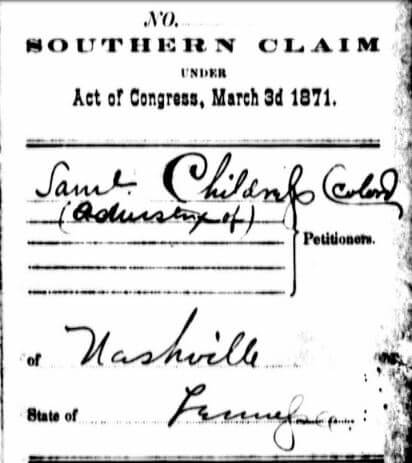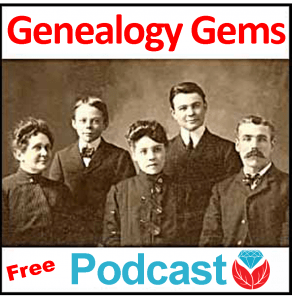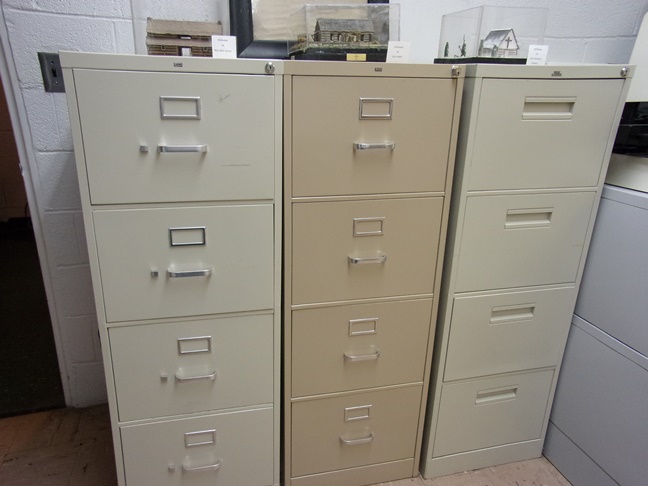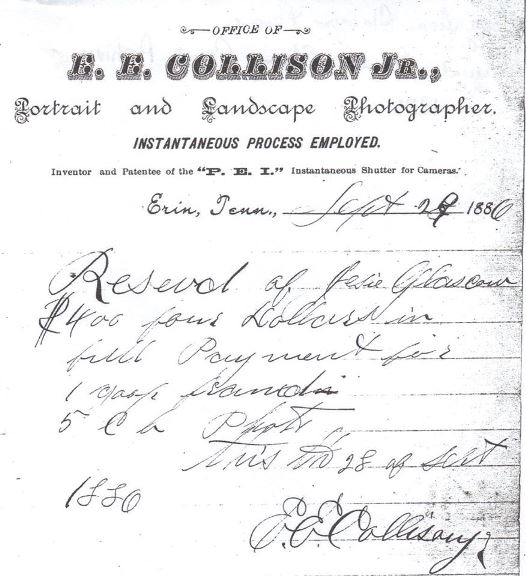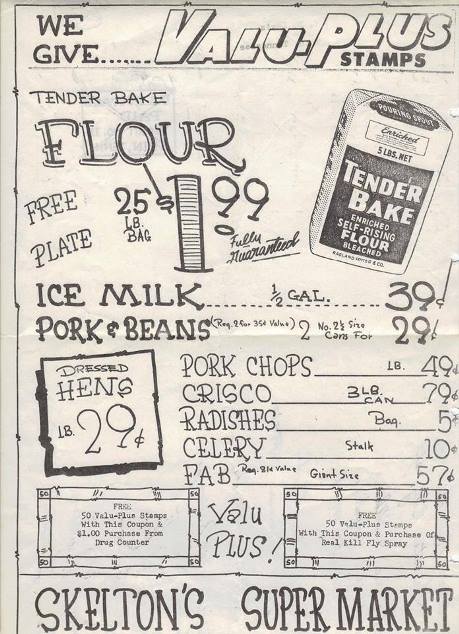Blog


Tracing your African American Roots: Top Tips
Researching African American roots has unique challenges. This Q&A with expert Angela Walton-Raji can inspire you with tips and success stories. Learn what to ask, what history you should know, how to face the 1870 “wall” and how to explore your ancestor’s freedom story.
Not long ago, genealogy expert Angela Walton-Raji joined me on the Genealogy Gems Podcast. She shared fantastic insights about tracing your African American roots, including why it can be challenging and how to overcome some of the brick walls you might encounter.
I’ve distilled our conversation down to some essential points here. Of course, I invite you to listen to the whole thing yourself in the free Genealogy Gems Podcast, episode 201.
Tracing your African American roots: With Angela Walton-Raji
To start with, I asked Angela what was unique about tracing your African American genealogy. She offered this important background:
“The African American story is unique in and of itself. Of course we get into the standard records that everyone uses: the vital records and census records. But there are going to be some challenges once one gets into 19th century, particularly once one reaches what we call the “wall” of 1870. [On the previous census, about 90% of African Americans were enslaved and therefore they aren’t listed.] Often you’re not quite sure where to go next.”
Oral history: what to ask
When someone doesn’t appear in the mainstream record trail, you have to find another path. Sometimes, you can start down that path with living relatives. Here’s some advice from Angela about talking with your family:
“Oral history is really important. If you’re talking to an elder today who may be in their seventies, they were clearly born in the 20th century. They may be the last generation living who knew someone who had been born enslaved. So ask them: ‘Who was the oldest person that you remember when you were a child? And did that person ever talk about anyone who may have been enslaved?’ Find out whether they happened to know anyone when they were a child who had been born into slavery.”
“Also ask what they know about where the family was from: ‘Were we always from Georgia, or were we always from Pennsylvania, or was there a time when we came from another place?’ There are so many critical questions and also key points in the historical timeline that you want to zoom in on and ask elders. These are critical things to ask elders to sort of jar their memories and get them to start talking as well.”
I totally agree with Angela about the need to ask questions that get people remembering. Often when we sit down with someone for an interview, the first response may be, “Oh, I don’t know” or “I don’t remember.” But if you come prepared with a collection of really thoughtful yet pointed questions, you can help them access their memories. They may be amazed at just how much they really do remember.
The most compelling stories in our family histories are often to be found during moments of change and transition. And that’s certainly what the end of slavery was. Angela talks passionately about discovering your family’s freedom story:
“The war ended. Slavery ended. How did freedom come to your family? It was not the same for everyone. Don’t forget, a major war took place. Some had a male relative (or several) who enlisted in the Union Army. Some emancipated themselves. If there was a conflict nearby or if there was a Union raid coming through the town, this was an opportunity. Men, women, and children left and followed the line and became contraband. There were hundreds of contraband camps all around the South. Some volunteered; some became employees, nurses, matrons, and cooks. (Click on this Wikipedia Commons photo of a contraband camp to learn more about it.)
“And what’s amazing is there may be records. We know the Freedmen’s Bureau records are there, but there are a whole lot of other records also. The records of the U.S. Colored Troops contain a plethora of family data, particularly if the soldier upon his death left a widow, or children, or sometimes a mother (I’ve even seen fathers claim a pension for a deceased son).
“Again, sometimes the key is to learn the history—even the local history. Let’s take Memphis, Tennessee for example. Right now if you live outside of Memphis, there’s a big industrial park in a little area called President’s Island. Well, guess what? In the Civil War President’s Island became a contraband camp. There were three contraband camps close to Memphis, and these were individuals who had really freed themselves and then had started to settle and create little settlements during the war and into the late 1860s, and this became a community. And that’s a story right there.” [Angela actually shares her own family’s story at President’s Island in this blog post.]
Next steps: Finding your enslaved ancestors
After discovering that freedom story, a genealogist tracing African American roots will eventually reach the point in history when their ancestors were enslaved. Angela describes this as requiring an entirely new approach: “identify the last-known slaveholder, and then follow that person’s history—because within their history you often find your ancestors popping up, as well. It’s a challenge but it can be done.”
Angela goes deeper into this and other topics in her video class, African American Genealogy Research Essentials. This hour-long class covers barriers arising from the institution of slavery and how to overcome them with persistence and the right approach. You’ll learn essential resources for digging deep into your African-American family history, with an emphasis on those that can be found online. This video class was originally presented as a live webinar and includes her Q&A. Click on the image here to order that webinar.
Thanks to Angela for sharing these strategies with us here at Genealogy Gems—and thanks in advance to YOU for sharing this free article with others who will want to read it. You’re a gem!

About the Author: Lisa Louise Cooke
Lisa is the Producer and Host of the Genealogy Gems Podcast, an online genealogy audio show and app. She is the author of the books The Genealogist’s Google Toolbox, Mobile Genealogy, How to Find Your Family History in Newspapers, and the Google Earth for Genealogy video series, an international keynote speaker, and producer of the Family Tree Magazine Podcast.
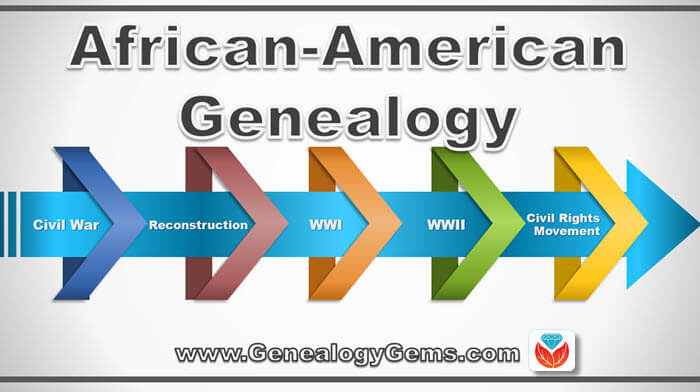
African American Genealogy Records: New and Free!
Explore these African and African American genealogy records in celebration of your family history and Black History Month!
Also this week: see new records online for Southern Claims Commission, GA, NY and VA as well as African heritage sites, Liberia and South Africa. And check out a limited-time offer from Fold3 to view its Black History collection for free.
Black History Collection free this month at Findmypast.com
“In recognition of Black History Month, Fold3 is making the records in its Black History collection available for free through the end of February,” states a recent company announcement. “The Black History collection gives you access to more than a million documents, records, and photos that help to capture the African-American experience during five eras of American history: Slavery, The Civil War, Reconstruction & Jim Crow Laws, World War I & II, and the Civil Rights Movement.
The Fold3 announcement lists several of its richest collections, and we think they’re worth noting individually:
- Danish West Indies – Slavery and Emancipation: These records cover the institution of slavery and the emancipation of slaves in the Virgin Islands during Danish rule, 1672-1917.
- Suppression of Slave Trade and Colonization (1854-72): These records cover the institution of slavery and the emancipation of slaves in the Virgin Islands during Danish rule, 1672-1917.
- Amistad – Federal and Supreme Court records: Court records pertaining to the claims of salvage for the Spanish slave schooner “Amistad,” seized in 1839 by the US Navy.
- American Colonization Society: Documents relating to the American Colonization Society, 1792-1964, an organization best known for its role in founding Liberia.
- Board of Commissioners – Emancipation of Slaves in DC: Records of the Board of Commissioners for the Emancipation of Slaves in the District of Columbia, 1862-63.
- Court Slave Records for DC: Records of the U.S. District Court for the District of Columbia Relating to Slaves, 1851-63, including emancipation and manumission papers.
- South Carolina Estate Inventories and Bills of Sale, 1732-1872: South Carolina court records relating to estate and personal assets.
- Colored Troops: Compiled military service records of volunteer Union soldiers serving in various colored units in the Civil War, including the United States Colored Troops (USCT).
African American genealogy records newly published online
U.S. Southern Claims Commission. The “genealogy giant” Ancestry.com has updated its collection of U.S. Southern Claims Commission, Disallowed and Barred Claims, 1871-1880. According to the collection description, “In 1871 the U.S. government created the Southern Claims Commission, an organization through which southerners could file claims for reimbursement of personal property losses due to the Civil War. Claims could only be filed by residents of AL, AR, FL, LA, MS, NC, SC, TN, TX, VA and WV.” Your African American ancestors may be among those listed therein: “Each claimant was required to provide witnesses. The witnesses had to answer the same 80+ questions that the claimant had to answer. Many of these witnesses were former slaves whose names rarely appear on any other legal document from the Civil War era. They also provided names and dates for family members who often lived on other plantations.”
Georgia. “The records of the Georgia Association of Educators (1921-2015)…are open for research,” reports the George State University Library. “The collection, comprised of unique documents and photographs, provides an in-depth look at the history of the organization that represents many of Georgia’s teachers. The collection includes convention proceedings, contracts and constitutions, meeting minutes, newspaper clippings, audio-visual materials, photographs, and periodicals.” Among the topics covered are the mergers of the previously-segregated black and white state teachers’ associations and integration of public schools about 1970. Click here to explore the finding aid to this collection.
New York. A first-of-its-kind free database documents those involved in the institution of slavery in New York from the earliest times. The New York Slavery Records Index “is a searchable compilation of records that identify individual enslaved persons and their owners, beginning as early as 1525 and ending during the Civil War,” reports the site. “Our data come from census records, slave trade transactions, cemetery records, birth certifications, manumissions, ship inventories, newspaper accounts, private narratives, legal documents and many other sources. The index contains over 35,000 records and will continue to grow as our team of John Jay College professors and students locates and assembles data from additional sources.” A hat-tip to WGRZ.com for publishing this article that alerted us to this valuable new resource.
Virginia. The Journal of Blacks in Higher Education reports, “Students in an introduction to public history class at Roanoke College in Salem, Virginia, created a digital archive of newspaper and other clippings collected during the civil rights era by the Hill Street Baptist Church in Roanoke. The project documents efforts in the area to desegregate lunch counters, movie theaters, and public schools during the 1950s and 1960s.”
African Genealogy and History Resources Now Online
African world heritage sites. CNN.com recently reported on a new online resource that seeks to provide digital preservation and access to important archaeological sites across Africa. “The archaeological wonders of the world offer a rich window into the past,” states the article. “But many are crumbling, weed-laden and victim to vandalism and conflict….Concerned with the decay of African heritage sites, The Zamani Project, based at the University of Cape Town, South Africa, is seeking to immortalize historic spots in three-dimensional, virtual reality-ready models…. Presently, they’ve mapped around 16 sites including Lalibela in Ethiopia, Timbuktu in Mali and Kilwa in Tanzania.”
Liberia. The free “genealogy giant” FamilySearch.org has added over 24,000 new record images and nearly 27,000 newly-indexed names to its free collection of Liberia, Marriage Records, 1912-2015. Documents include “applications for marriage licenses, marriage licenses, marriage returns, documents certifying marriages from Liberia.”
South Africa. FamilySearch has also updated two of its existing South Africa records collections with more indexed names: South Africa, Cape Province, Kimberley, Probate Records of the Supreme Court, 1871-1937 and South Africa, Cape Province, Probate Records of the Master of the High Court, 1834-1989.
Listen to more African American genealogy topics
The free Genealogy Gems Podcast and the Genealogy Gems Premium Podcast have both featured inspiring interviews on African African genealogy research. We recommend these:
Genealogy Gems Podcast episode #201: Angela Walton-Raji joins Lisa Louise Cooke with tips for interviewing African American relatives, learning important history and getting past that 1870 brick wall into the era of American slavery. Listen for free!
Genealogy Gems Podcast episode #200: A university professor shares his discoveries about a mother and young daughter separated by slavery. Learn how he pieced together their story from a poignant family heirloom found at a flea market.
Genealogy Gems Premium Podcast episode #130: Oprah Book Club author Lalita Tademy talks about her book Citizen’s Creek, a novel about an African American and Creek Indian family. This special episode (and all Premium Podcast episodes) is something extra just for our Premium subscribers; click here to learn how to subscribe.
Disclosure: This article contains affiliate links and Genealogy Gems will be compensated if you make a purchase after clicking on these links (at no additional cost to you). Thank you for supporting Genealogy Gems!

About the Author: Sunny Morton
Sunny is a Contributing Editor at Lisa Louise Cooke’s Genealogy Gems; her voice is often heard on the Genealogy Gems Podcast and Premium Podcasts. She’s known for her expertise on the world’s biggest family history websites (she’s the author of Genealogy Giants: Comparing the 4 Major Websites); writing personal and family histories (she also wrote Story of My Life: A Workbook for Preserving Your Legacy); and sharing her favorite reads for the Genealogy Gems Book Club.

Using Vertical Files in Archives
Vertical files in archives are like Forrest Gump’s proverbial box of chocolates: you never know what you’re going to get. The Archive Lady Melissa Barker shows us the fabulous genealogy finds that may be awaiting you in an archive somewhere. The family history you may find may be even sweeter than your favorite truffles.
In the movie Forrest Gump, the character Forrest Gump says: “Life is like a box of chocolates, you never know what you’re going to get.” In an archive, it can be said: “Vertical files are like a box of chocolates, you never know what you’re going to get.” So, what are vertical files?
Vertical files in archives
Vertical files (or subject files as they are sometimes called) can be found in most state and local archives, historical societies, genealogical societies, libraries and even in some museum collections.
Vertical files are a collection of documents and ephemera that are put in file folders which are then put in filing cabinets and cataloged by surname or subject. These files could contain just about anything that can fit into a file folder. Most archives will create an index by the title on each folder but most of the time what is inside of each folder is not cataloged. Vertical files are sometimes seen as a “catch-all” or a “hodgepodge” for all those documents that don’t really go anywhere else but should not be discarded.
Images courtesy of Melissa Barker and Houston County, TN Archives.
Most archivists file family group sheets and genealogical information that has been donated to the archives in vertical files. Other wonderful items found in vertical files could be compiled family histories, photographs, and even receipts like the one shown here for E.E. Collison Jr’s Portrait and Landscape Photography studio.
Images courtesy of Melissa Barker and Houston County, TN Archives.
One of the most popular genealogical items to find in vertical files is newspaper clippings. These clippings could be an obituary, a marriage announcement, a birth announcement or just about anything that has been clipped from the newspaper. Above is an example: an advertisement for Skelton’s Super Market.
Accessing and using vertical files in archives
When doing genealogy research in an archive, ask the archivist if they have vertical files. These collections of records could be very valuable for genealogy research. Some archives don’t always advertise that they have a collection of vertical files, so it’s important that the researcher ask the archivist specifically about this collection. Vertical files are usually stored in back rooms of the archives but the index is available at the archivist’s front desk or they could be on the in-house computer.
Once you have found what interests you in the index, you can request the files that you would like to investigate further. The archivist will retrieve them and bring them to you, sometimes only one or two files at a time. Once you have received the files, you can look at each item and make copies of what is of interest to you and your genealogy research. When you have finished with the file, give it back to the archivist who will then bring other files you have requested.
So next time you are researching at an archive, ask if they have vertical files! Like that box of chocolates,”you never know what you are going to get.”
My motto is, “It’s not all online, contact or visit an archive today!” Read more articles about uncovering genealogy gems in original manuscript repositories–you may soon find yourself visiting one.
Found in an archive: 10 unexpected discoveries
Keeping up: How to know what’s new at your favorite archive
Top 5 questions I get asked as an archivist
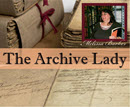
About the Author: Melissa Barker
The Archive Lady
Melissa is a Certified Archives Records Manager, the Houston County, Tennessee Archivist and author of the popular blog A Genealogist in the Archives and an advice columnist. She has been researching her own family history for the past 27 years.

